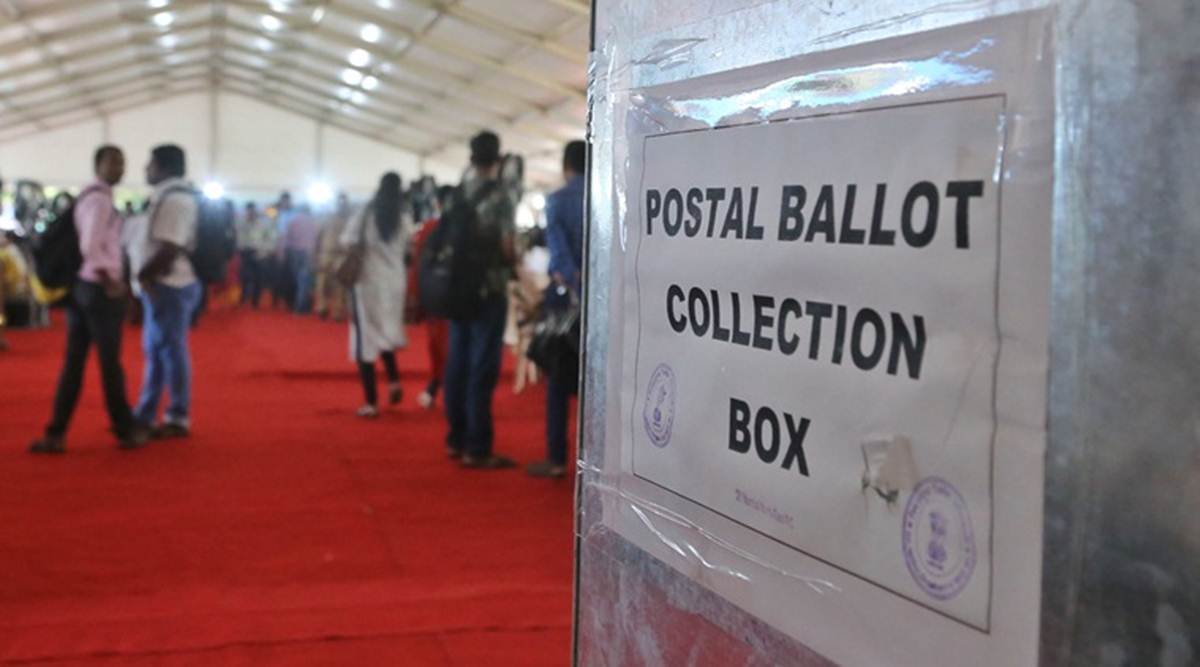 According to rough estimates, there are about 1 crore Indians settled abroad, of whom about 60 lakh could be of eligible voting age.
According to rough estimates, there are about 1 crore Indians settled abroad, of whom about 60 lakh could be of eligible voting age.Over a year after the Bill that proposed to extend proxy voting to overseas Indians lapsed with the dissolution of the 16th Lok Sabha, the Election Commission (EC) has now approached the government to permit Non-Resident Indians (NRIs) to cast their votes through postal ballots.
The Commission told the Law Ministry last week that it is “technically and administratively ready” to extend the Electronically Transmitted Postal Ballot System (ETPBS) to NRI voters for elections next year in Assam, West Bengal, Kerala, Tamil Nadu and Puducherry.
Currently, voters residing abroad can only cast their votes in their respective constituencies. This regulation is seen as restrictive as only a few thousand Indians living overseas have registered as voters, the maximum being from Kerala.
According to rough estimates, there are about 1 crore Indians settled abroad, of whom about 60 lakh could be of eligible voting age. They could hold considerable sway in election results, especially in states such as Punjab, Gujarat and Kerala, where a number of expats hail from.
Under ETPBS, which is currently only available to service voters, the postal ballot is dispatched electronically and returned via ordinary mail. To extend this facility to overseas voters, the government only needs to amend the Conduct of Election Rules 1961. It doesn’t require Parliament’s nod.
Numbers to swing results
Estimates are that there are about 1 crore Indians settled abroad, of whom about 60 lakh could be of eligible voting age. They could hold considerable sway in election results, especially in states such as Punjab, Gujarat and Kerala, where a number of expats hail from.
According to the Commission’s proposal received by the Law Ministry, any NRI interested in voting through the postal ballot in an election will have to inform the Returning Officer (RO) at least five days after the notification of the election. On receiving such information, the RO will dispatch the ballot paper electronically. The NRI voters will mark their preference on the ballot printouts and send it back along with a declaration attested by an officer appointed by the diplomatic or consular representative of India in the country where the NRI is resident.
It’s not clear, at this moment, if the voter will return the ballot paper herself through ordinary post or drop it off at the Indian Embassy, which may then segregate the envelopes constituency-wise and send them to the Chief Electoral Officer of the state concerned for onward transmission to the RO.
It was in 2014 that the EC took up the proposal to permit NRI voters to cast their votes, after it received several requests, including one from Rajya Sabha MP and industrialist Naveen Jindal and the Ministry of Overseas Affairs.
During its consultations with political parties and the Ministry of External Affairs (MEA) on postal ballot voting for NRIs, the latter has expressed strong reservations over attesting the declaration that voters will have to send along with their marked ballot papers.
The MEA had said that “diplomatic missions do not have the logistical wherewithal to handle attestation for a large number of overseas electors” and that they would have to seek the permission of the host country for organising such activity, which may be difficult in non-democratic countries.
Among political parties, only the Nationalist Congress Party has expressed complete support to the EC for postal voting for NRIs. According to the Bahujan Samaj Party, Bhartiya Janata Party and Communist Party of India, postal ballots were not a viable option due to time constraint. The Congress party was not in favour of sending the postal ballot paper electronically.
In 2015, after consultations, the EC wrote to the government proposing proxy voting (the voter appoints a proxy to vote on her behalf) and postal ballots for Indians residing abroad. In 2018, the government tried to grant proxy voting rights to overseas electors through an amendment to the Representation of the People Act 1951. The Bill was passed by the Lok Sabha and was awaiting Rajya Sabha’s approval when it lapsed with the dissolution of the 16th Lok Sabha. In its letter last week, the EC pushed only for postal voting rights for NRIs, not proxy voting.